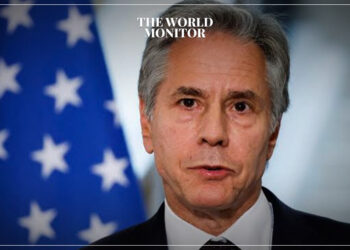France has presented a written plan to Lebanon aimed at halting the ongoing hostilities with Israel and resolving the territorial disputes along the Lebanon-Israel border.
This proposal, which has been shared with Reuters, suggests a withdrawal of combatants, including Hezbollah’s elite forces, by 10 kilometers (approximately 6 miles) from the border area.
The initiative is part of efforts to cease the fighting between Hezbollah, supported by Iran, and Israel, which has been occurring concurrently with the conflict in Gaza, raising fears of a broader war.
The proposal, representing the first formal written offer during weeks of diplomatic efforts by Western countries, was handed over to Lebanon’s top government officials, including Prime Minister Najib Mikati, by French Foreign Minister Stephane Sejourne.
The document outlines a plan to avoid a potentially uncontrollable conflict, establish a ceasefire under suitable conditions, and eventually lead to discussions on demarcating the contentious land border between Lebanon and Israel.
Hezbollah has stated it will not engage in talks to de-escalate the situation until the Gaza conflict concludes, a stance confirmed by a Hezbollah official when asked about the proposal.
The French plan, which had not been fully disclosed before, outlines a three-step de-escalation process over 10 days, culminating in border negotiations.
According to a French diplomatic source, the proposal has been shared with the governments of Israel, Lebanon, and Hezbollah.
France, which has historical connections with Lebanon and maintains a significant presence there, including 20,000 citizens and around 800 troops as part of a UN peacekeeping force, is actively involved in the mediation process.
Foreign Minister Sejourne emphasized the importance of consolidating all peace-building efforts in coordination with the United States.
The proposed plan includes halting military activities between Lebanese armed factions and Israel, such as Israeli airstrikes in Lebanon.
It requires the dismantling of military installations near the border and the withdrawal of combat forces, including Hezbollah’s Radwan unit and heavy weaponry, to a position 10 kilometers north of the border.
This withdrawal is less extensive than the 30 kilometers mandated by a UN resolution following the 2006 conflict with Israel but is considered a compromise more acceptable to Hezbollah.
The proposal also involves deploying up to 15,000 Lebanese army troops in southern Lebanon, a region under Hezbollah’s influence where its fighters integrate into civilian life during peaceful times.
Hezbollah, through senior politician Hassan Fadlallah, has indicated it will not discuss any proposals related to southern Lebanon until the assault on Gaza ceases, asserting that Israel is not in a position to set terms.






